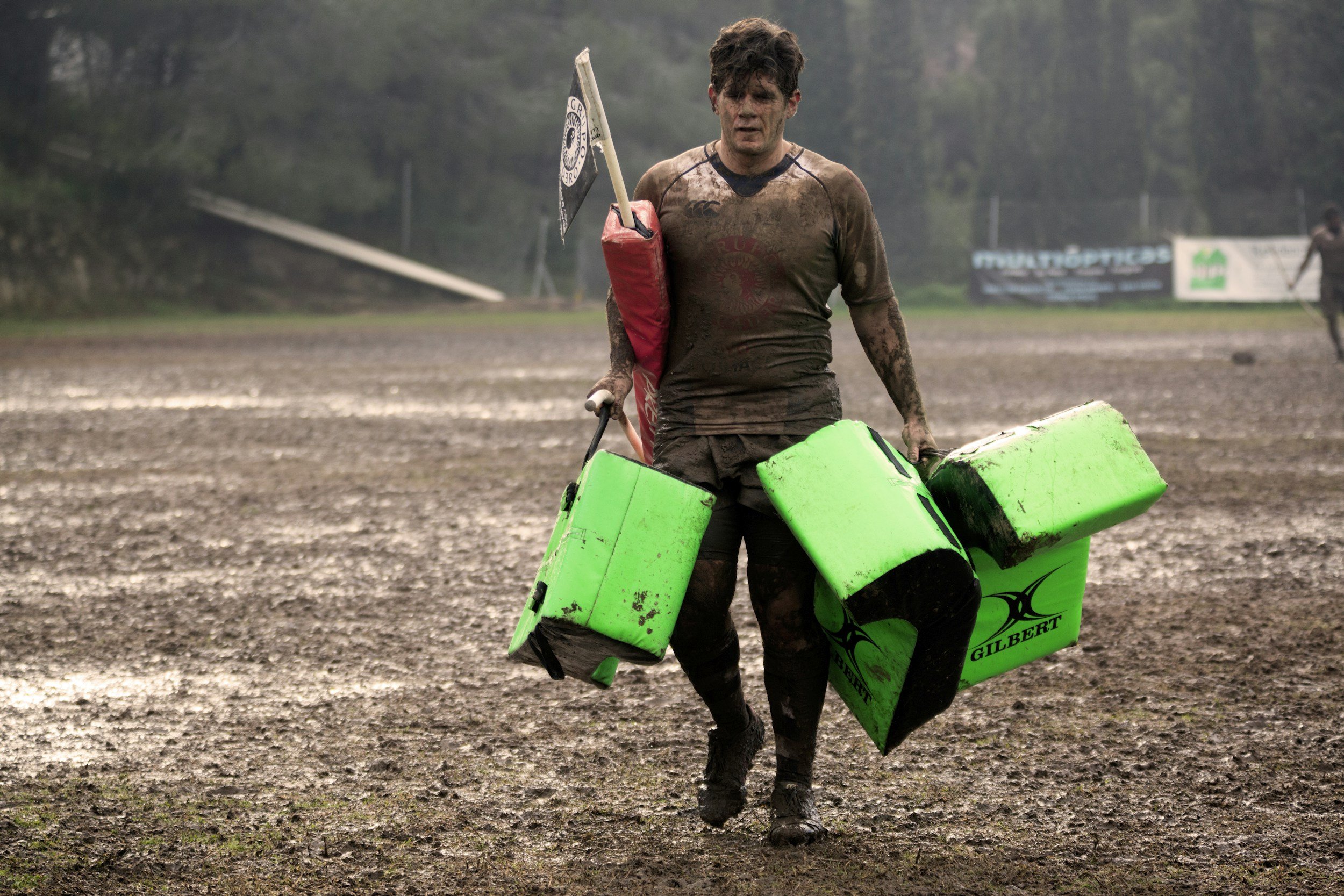
#GET SEEN GET SELECTED
Whether you’re a player working toward your goals, a dedicated coach, a fan eager to learn more, or someone discovering rugby for the first time, We believe rugby is a game for everyone.
It’s not just about the try line—it’s about the journey, the community, and the lessons we carry with us long after the final whistle.
Finding Your Perfect Position in Rugby League: A Guide for New Players
Rugby league has a position for every type of player, from the powerful props to the speedy wingers. By understanding your physical attributes, temperament, and preferences, you can find the role that best suits your strengths and personality.
The key to finding your position is being willing to experiment and work with your coach to develop the skills needed for your chosen role. No matter where you play, rugby league is a game that values teamwork, effort, and passion—traits that every position requires.
Concussions in Rugby: Prevention and Treatment
Concussions in rugby are serious injuries that require a unified approach to prevention and treatment. By focusing on education, proper technique, and adherence to protocols like "Recognize and Remove," the rugby community can protect players while maintaining the integrity of the sport.
Through proactive measures and a commitment to player welfare, rugby can continue to evolve as a safer game for everyone involved.
The Bronco and Beep Tests: Measuring and Improving Rugby Fitness
The Bronco and Beep Tests are invaluable for assessing rugby fitness and guiding training programs. By using these tools to set baselines, track progress, and tailor workouts, players can build the stamina, speed, and resilience needed to excel on the field.
Whether you’re a seasoned player or a newcomer aiming to improve your fitness, incorporating these tests into your routine will help you prepare for the demands of rugby and reach new performance levels.
How to Train Like a Rugby Player: Building Strength, Speed, and Stamina
Training like a rugby player requires a balance of strength, speed, stamina, and recovery. By incorporating rugby-specific drills and exercises into your regimen, you can develop the power and fitness needed to excel on the field. Pairing your training with proper nutrition and mental preparation ensures you’re ready for whatever the game throws at you.
Whether you’re aspiring to play competitively or simply want to train like a rugby athlete, this approach will help you build the physical and mental attributes to perform at your best. Let the journey begin!
The Strangest Rugby Matches Ever Played
Rugby is a sport full of surprises, and these strange matches showcase its unpredictability and charm. From foggy fields to unexpected upsets, these games highlight the diversity and adaptability of rugby’s players, fans, and officials.
Whether it’s the “Brighton Miracle,” the mud-soaked classics, or record-breaking blowouts, these matches remind us why rugby is a sport like no other. They serve as a testament to the game’s ability to entertain and amaze, even in the most unusual circumstances.
The Fittest Rugby Players to Ever Play the Game
The fittest rugby players in history have demonstrated that elite conditioning is about more than just physical attributes—it’s about dedication, work ethic, and the ability to maintain performance under pressure.
From Richie McCaw’s relentless endurance to Jonah Lomu’s powerful athleticism and Beauden Barrett’s explosive speed, these players have set the standard for what it means to be "rugby fit." Their commitment to their craft not only defines their success but also serves as inspiration for players and fans worldwide.
The Fastest Rugby Players Ever: Speed That Defines the Game
The fastest rugby players ever have all used their exceptional speed to change the course of matches, leaving defenders in their wake. Whether through electrifying bursts of pace, clever footwork, or sheer acceleration, these players have demonstrated how critical speed is in rugby.
While some of these players, like Carlin Isles and Takudzwa Ngwenya, have become known for their raw sprinting ability, others like Jonah Lomu and Brian Habana have combined speed with power, creating some of the most memorable moments in rugby history.
Ultimately, speed is a powerful tool in rugby, and these athletes prove that when used effectively, it can be a game-changer.
Finding Your Position in Rugby UNION: A Guide for Newcomers
Rugby offers a position for every type of player, from the powerful props to the fleet-footed wings. By understanding the demands of each role and assessing your physical attributes and temperament, you can find the position where you’ll excel.
Rugby’s inclusivity ensures that everyone has a place on the field. Whether you’re tackling in the front row or scoring tries out wide, your unique skills and personality will contribute to the team’s success. Give it a go, and you’ll find your spot in the game we all love.
Should Kids Under 16 Be Doing Weights?
Weight training can be a safe and effective activity for kids under 16 when tailored to their developmental stage and guided by trained professionals. It offers numerous physical and mental benefits, including injury prevention, improved athletic performance, and increased confidence.
However, the emphasis should always be on proper form, age-appropriate exercises, and gradual progression. By keeping the focus on long-term development rather than short-term gains, children can build a strong foundation for lifelong fitness and health.
If done right, weight training becomes more than just exercise—it becomes an empowering experience that supports young athletes in all aspects of life.
Alternatives to Contact Rugby: Embracing Touch and Tag Rugby
Touch and tag rugby are fantastic alternatives to the full-contact game, combining the excitement of rugby with a focus on fun, fitness, and inclusivity. Whether you’re a seasoned player looking for a less physical version, a parent introducing your child to the sport, or someone entirely new to rugby, these non-contact formats offer something for everyone.
With touch and tag rugby, the spirit of rugby—teamwork, skill, and enjoyment—remains as strong as ever, making it a wonderful way to play the game we love without the heavy hits.
Rugby League vs. Rugby Union: Which Sport Is More Grueling?
Which sport is more grueling ultimately depends on the player's perspective and role. League may feel tougher due to its unrelenting speed and intensity, while union’s grinding physical battles and tactical depth offer their own unique challenges.
One thing is certain: both sports are among the toughest in the world.
How strong do I need to be?
The strongest rugby players are not only capable of lifting extraordinary weights but also translating that strength into game-winning performances. Whether it's dominating a scrum, smashing through a tackle, or powering through a sprint, their strength is a blend of raw power, explosive energy, and functional fitness.
Their gym feats are impressive, but their ability to apply this strength effectively on the pitch truly defines their status as some of the strongest athletes in sports.
How to Become a Professional Rugby Player: A Comprehensive Guide
Rugby is more than a career—it’s a lifelong passion. So, whether you’re running onto the field as a professional, competing in your local league, or cheering from the sidelines, remember why you started: the love of the game.
Keep playing, keep growing, and keep enjoying rugby, no matter where your journey takes you.
Compete with Yourself: The Path to Better Gym and Fitness Stats
Competing with yourself is the most empowering way to approach fitness. It emphasizes growth over comparison, encourages consistency, and fosters a positive relationship with training. Whether you’re working to increase your bench press, shave seconds off your sprint, or master the Bronco test, remember that the only competition that truly matters is with the person you were yesterday.
So, keep striving, stay consistent, and enjoy the process. Every small victory adds up to something extraordinary: a stronger, healthier, and more confident version of yourself.
When to Consider Moving to a New Rugby Club
Moving to a new rugby club can be an exciting opportunity for growth, but it’s a decision that requires careful thought. Whether your motivation is to push your limits, find a better cultural fit, or adapt to life changes, the key is to ensure the move aligns with your personal goals and values.
Rugby is ultimately about enjoying the game we love and growing both as a player and a person. By taking the time to reflect, communicate, and research, you can make a transition that benefits not only your rugby career but also your overall well-being.
Disclaimer
The content provided on this website is for informational and educational purposes only. It represents the opinions and viewpoints of the authors and should not be considered as medical, financial, or professional advice.
We do not provide medical diagnosis, treatment, or professional medical recommendations. Always consult a qualified healthcare professional for medical concerns or before starting a new fitness or health regimen.
Similarly, we do not offer financial advice or guarantees regarding the topics discussed. Please consult a licensed financial advisor for financial guidance tailored to your individual circumstances.
While we strive for accuracy, the information shared on this website may not always reflect the latest developments, and we do not guarantee the completeness or reliability of any content. Use the information provided at your own discretion and risk.
By accessing and using this website, you agree to hold us harmless from any outcomes or decisions made based on the content provided. For personalized advice or assistance, consult a qualified professional in the relevant field.
— The Rugby Factory ©















